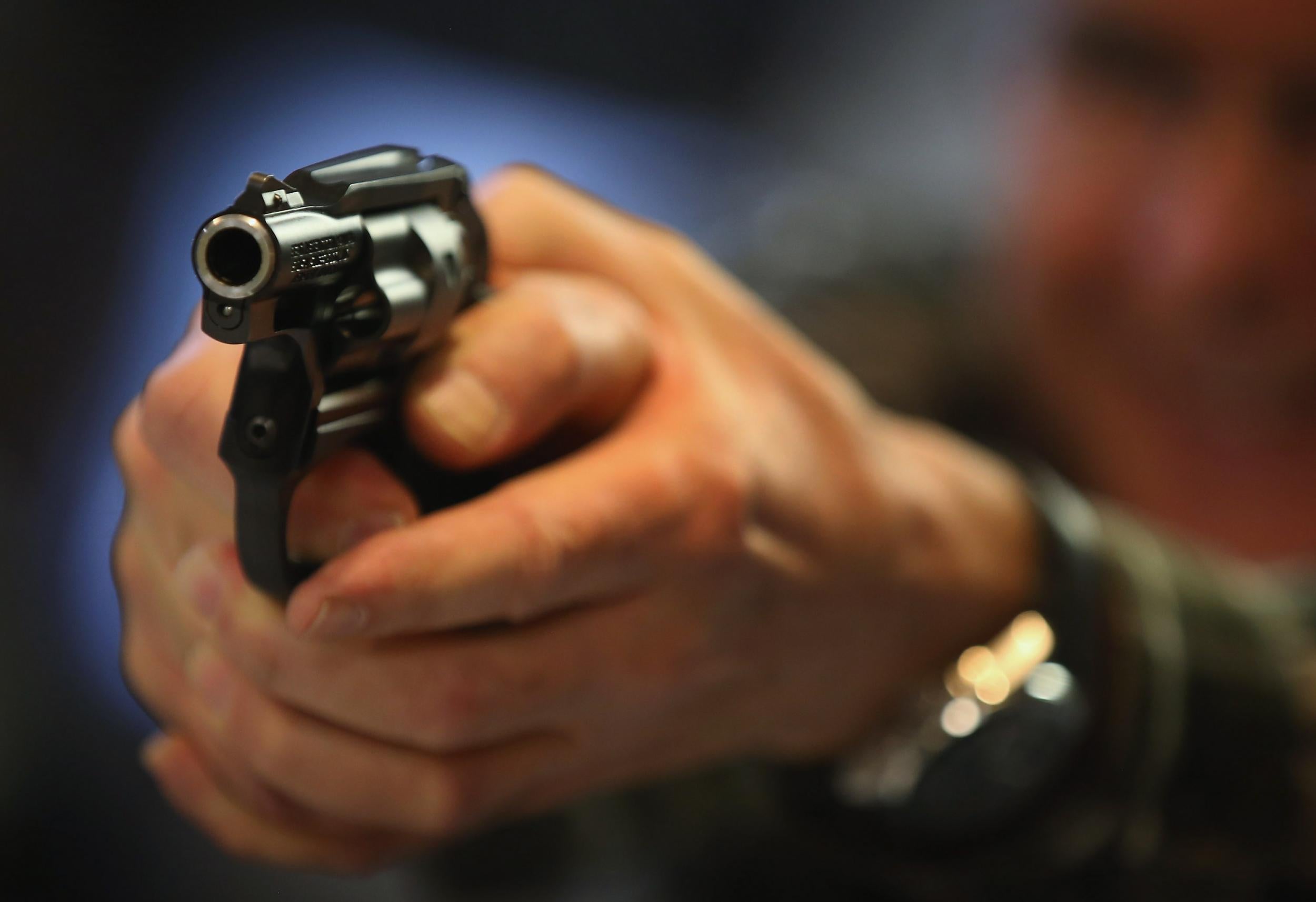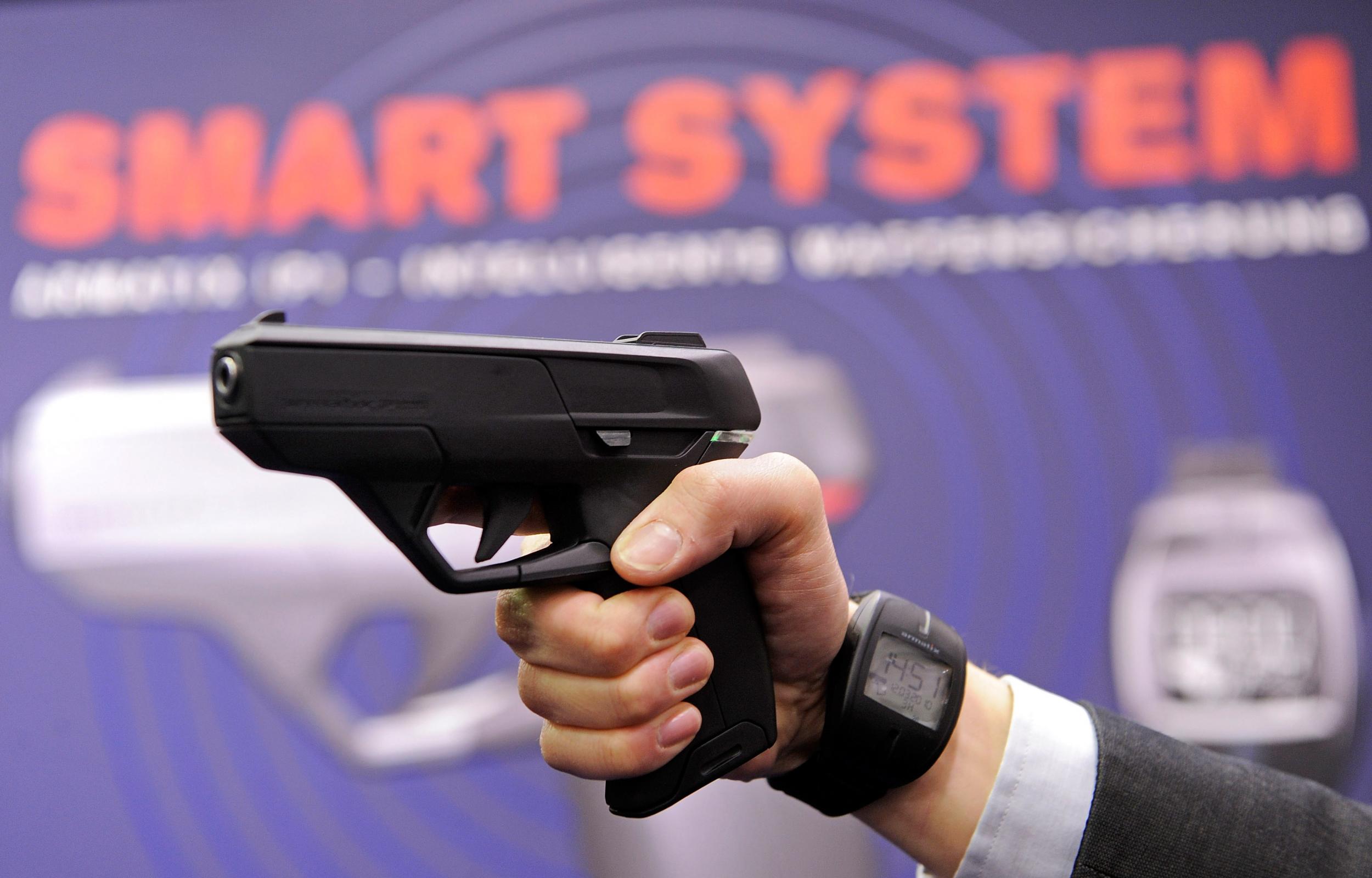Could controversial 'smart gun' technology be the cure to America's gun violence epidemic?
Barack Obama recently ordered an investigation into the widespread deployment of smart gun technology in the US

Your support helps us to tell the story
From reproductive rights to climate change to Big Tech, The Independent is on the ground when the story is developing. Whether it's investigating the financials of Elon Musk's pro-Trump PAC or producing our latest documentary, 'The A Word', which shines a light on the American women fighting for reproductive rights, we know how important it is to parse out the facts from the messaging.
At such a critical moment in US history, we need reporters on the ground. Your donation allows us to keep sending journalists to speak to both sides of the story.
The Independent is trusted by Americans across the entire political spectrum. And unlike many other quality news outlets, we choose not to lock Americans out of our reporting and analysis with paywalls. We believe quality journalism should be available to everyone, paid for by those who can afford it.
Your support makes all the difference.The problem of gun violence in America has already resulted in the deaths of 398 people this year, a figure which has caused the country's politicians to look to the world of tech for an answer to the shooting epidemic.
As part of his recent executive actions to curb gun violence, President Obama called for three federal agencies - the Department of Defence, the Justice Department, and the Department of Homeland Security - to step up research into 'smart gun' technology, with the aim of preventing the "accidental discharge or unauthorised use of firearms."
Over the next few months, the White House says, these agencies will work on a strategy designed to implement the "real-world deployment" of this technology.
Most smart guns operate on the principle that only the owner of the firearm should be able to shoot it. Such technology could prevent gun accidents, which caused almost 2,000 injuries and deaths in the US last year, and stop stolen guns being used by criminals or unlicensed carriers.
Like modern smartphones, a lot of these devices feature fingerprint scanners - using a reader on the side of the gun or even on the trigger, the technology ensures that only an authorised user can 'unlock' the firearm.
One such device, the Identilock, created by Detroit-based engineer and National Rifle Association (NRA) member Omer Kiyani, takes the form of a black box that fastens on to the end of a handgun.
Kiyani said he was inspired to make his device in the wake of the 2012 Sandy Hook shooting, in which 20-year-old Adam Lanza murdered 20 children, all of whom were between the ages of six and seven, and six teachers at a school in Connecticut
Speaking to the Washington Post about his invention, he said: "Now is the time, no one else is doing it, so I have to do it myself."
"I have to do it because I felt helpless."
The Identilock works by fastening on to the gun's trigger, preventing it from being pulled. When the owner places their fingertip against the scanner on the side of the device, the lock disengages and the whole Identilock drops to the floor - revealing the trigger and allowing the gun to be fired.

Other manufacturers have created similar devices, like the Armatix iP1, an RFID-enabled pistol that can only be fired when being held by someone wearing a digital key on their wrist.
iGun Technologies, which was started by Jonathan Mossberg of the Mossberg gunmaking family, develops smart shotguns that can only be fired by someone wearing an electronic ring, which works like a contactless bank card - like the Armatix, the firing mechanism only unlocks once the ring comes close enough.
These kinds of devices would be unlikely to completely stop many of the deliberate mass shootings that regularly make headlines. Dylann Roof, who killed nine people in a racially-motivated attack at a South Carolina church last year, bought the gun he used in the shootings legally, due to a fault in the background check database that did not record a previous drugs offence which would have prevented his purchase.
Gun killers like cinema shooter James Holmes and Vester Lee Flanagan, who killed two television reporters live on air, also both bought their guns legally, despite suffering from mental illnesses, and deliberately set out to kill people.
However, the guns Lanza used at Sandy Hook belonged to his mother Nancy - if these guns were fitted with smart gun technology that would have only allowed Nancy to fire them, perhaps the shooting could have been avoided.
Despite the possibilities, there has been some opposition from gun owners themselves, partly due to the reliability of the technology - smartphone fingerprint scanners can be temperamental at the best of times, and gun owners who want to defend themselves worry that if their smart gun didn't unlock, it could cost them their lives.
Smart gun creators have hit back, claiming that guns, as mechanical devices, do not work 100 per cent of the time. A well-made piece of smart gun technology would theoretically make a firearm no less reliable than a traditional gun.
Most gun dealers and gun associations like the NRA are unopposed to the technology in principle, but only if the move towards the technology is consumer-led.
The New Jersey government came under fire recently for passing a law that would legally require gun dealers to sell smart guns alongside traditional firearms, no less than three years after the technology fully comes on to the market. The law now awaits approval from Governor Chris Christie, a Republican presidential nominee, who opposes it.
Speaking to the Washington Post, NRA spokeswoman Amy Hunter said: "We're opposed to government mandates that require consumers to purchase particular items."
Until recently, smart guns only existed in the world of Hollywood, with one appearing in 2012's Skyfall, in which James Bond is issued with a palm-reading pistol that only he can fire.
However, the technology now exists, and with a full-scale federal investigation in the works, the devices may one day be saving lives in the real world.
Join our commenting forum
Join thought-provoking conversations, follow other Independent readers and see their replies
Comments